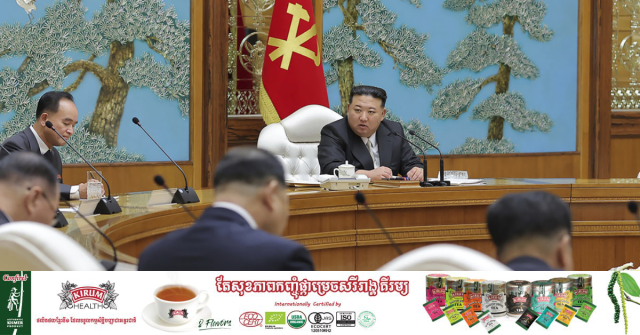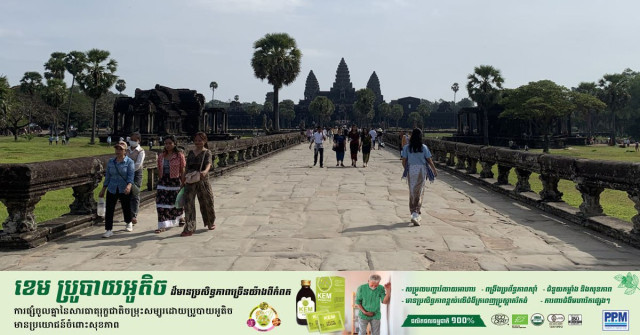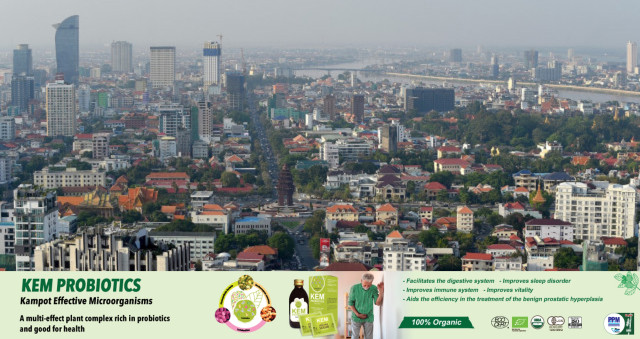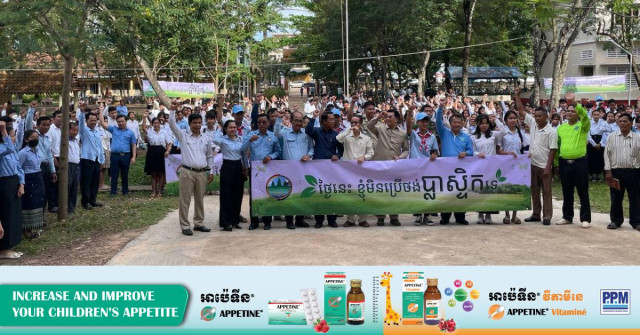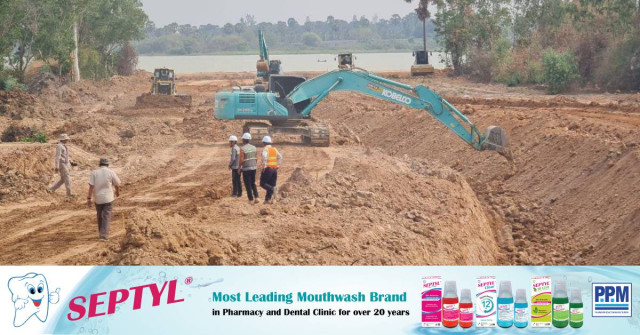Post-COVID-19 Business Opportunities to be Under the Spotlight in September

- By Sam Sopich
- August 30, 2022 11:49 AM
PHNOM PENH – Restoring the financial health of Cambodian businesses in the post-COVID-19 economy is the new challenge ahead for the country’s business owners.
In a press conference held on Aug. 29, business training specialists announced the upcoming roundtable forum “Challenges and Opportunities After COVID-19 and the New Global Economic Waves”, which will be held on Sept. 3 at Phnom Penh Hotel.
It will be the opportunity for attendees to gather information on the development of small and medium enterprises (SMEs), put the spotlight on global economic issues, better understand the regional economy and have a look at key economic plans the government has set up to maintain the economy.
During the presentation to the press, business specialists called on business owners to increase their sales capacity and network, and monitor government policies as well as global issues to better ride the wave of the economic recovery.
Although the pandemic has had devastating effects on many companies, business training experts encourage them not to give up and seize opportunities to improve their ability to adapt to the new normal business situation.
Tan Monivann, the vice-chairman of the Cambodian Chamber of Commerce, who was speaking at the press conference, said that COVID-19 and the war in Ukraine have had negative impacts at all levels, from the global economy to small businesses in Cambodia. Agriculture is one of the sectors that suffer the most, especially with the rising cost of fertilizers.
Monivann encouraged business owners to follow the global situation and the government policies, and take business decisions accordingly. For instance, if imports are declining due to the rising cost of transportation, the Cambodian economy should increase its production capacity to rely less on foreign markets.
He pledged to further implement the concept of “ecosystem businesses” to unify the Cambodian economy and increase national production.
“Ecosystem business defines a company with has both a good business model and enables good cooperation with other business partners to ensure its long-term survival,” he said.
He explained that if people raise cows for milk, they require a partner who can grow quality grass and another partner who stores milk and sells it on the domestic or international markets.
“One cannot know everything and does not have enough money to invest in the entire production chain. Therefore, we require a free economy, so that every business can specialize in its field, so products can meet the best quality standards and be good enough for being exported,” he said.
Sangly Sarak, another speaker at the press conference and founder of Business Advisor, a company dedicated to communication and storytelling, said that to survive, business owners need to improve their capacity in human resource management, sale, and marketing. If they cannot control their staff well nor can they sell and market their products well, they will eventually fail.
“We need to strengthen our capacity, not to sit and complain about COVID-19 or the global crisis, but to start expanding one's learning ability,” he said.
He emphasized that creating an economic framework based on the concept of “ecosystem businesses” will benefit the Cambodian economy, enabling industry diversification and interdependence among companies. “Cooperation and investments are good ways to expand production,” he said.
Kem Oeun, founder and general director of Home-Ducation, said that the purpose of the upcoming forum is to provide information to entrepreneurs on where SMEs’ development is going in the future. Where is the world economy? Where is Cambodia's economic zone headed?
“It will help businessmen and businesswomen answer the challenges posed by both the COVID-19 crisis and the global recession. But above all, it will help them seize business opportunities in these troubled times,” he said.
With drastic travel restrictions and a massive disruption of supply chains, COVID-19 heavily impacted three major sectors of the Cambodian economy: tourism, exports of goods, and construction. Combined, these three sectors accounted for more than 70 percent of the country’s economic growth before the pandemic and represented 39 percent of all paid employees in the country.
Nevertheless, in its latest Macro Poverty Outlook from April 2022, the World Bank reaffirmed its projections of a 4.5 percent GDP growth in 2022, thanks to the high level of vaccination among the Cambodian population, and the government’s strategy to “live with COVID-19”.
The economic recovery is primarily driven by the upturn in garment, travel goods, footwear, and bicycle manufacturing, as well as agriculture. In contrast, the tourism sector has yet to rebound: during the first semester of 2022, 506,762 international tourists visited Cambodia, an 84.8 percent decrease from the period in 2019.







